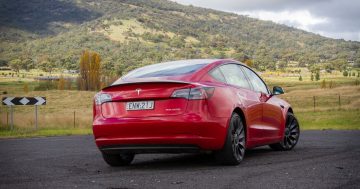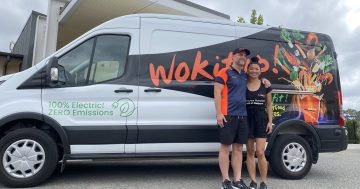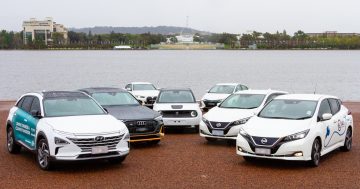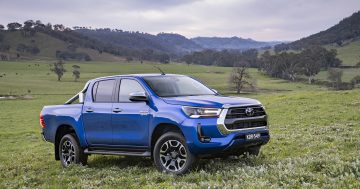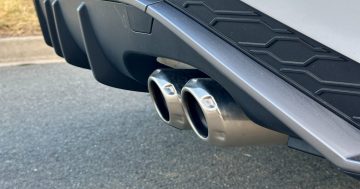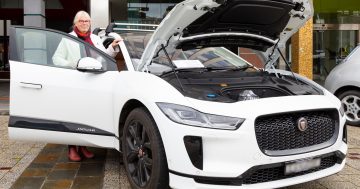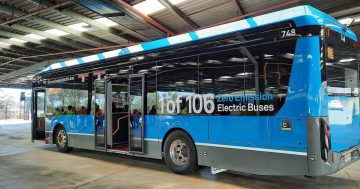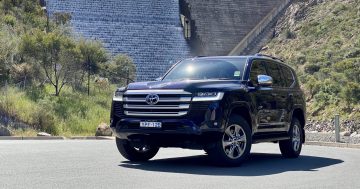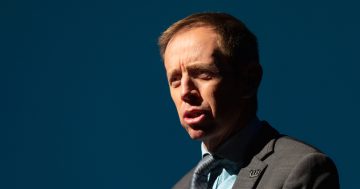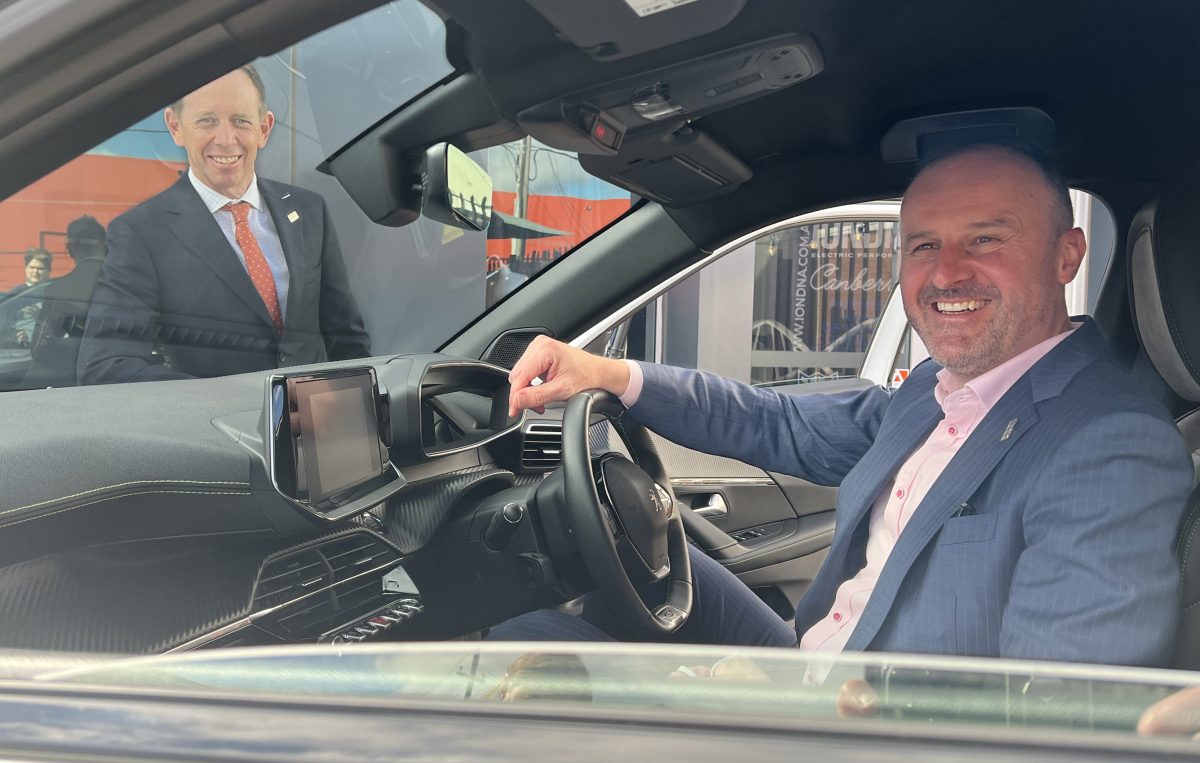
Chief Minister Andrew Barr and Minister for Energy and Emissions Reduction Shane Rattenbury releasing the Territory’s Zero Emissions Vehicle strategy. Photo: Lottie Twyford.
The Territory will begin its transition away from the weight-based vehicle registration system towards an emissions-based system within three months.
The ACT Government has announced new and used Zero Emissions Vehicles (ZEVs), whose two-year free registrations finish on 25 May, will transition to the lowest fee category.
While the remainder of the light vehicle fleet will transition from the weight-based system to the emissions-based system on 1 July 2024.
Transport makes up more than 60 per cent of the ACT’s emissions; however, Chief Minister Andrew Barr said the move was also about people’s back pockets.
“The changes are designed to minimise cost-of-living pressures – with 96 per cent of all vehicles paying the same or less as part of the transition when the g overnment ends the current two-year free registration for Zero Emissions Vehicles,” he said.
“These new initiatives are designed to ensure we have an appropriate vehicle registration system for the future. They will see lower fees for lower-emission vehicles, including for lower-emitting petrol and diesel vehicles.”
The ACT Government said this scheme would enable Canberrans to access lower fees for lower emissions across any motor type.
However, it’s expected 96 per cent of Canberrans will either pay the same or less registration than they do currently.
The registration fee range will stay the same – from $329 to $599 under current costs – but there will be six categories instead of four.
For those vehicles whose registration costs rise, the increase will be between $35 to $50.
Registration costs are also subject to indexation each year.
From 1 July 2024, an owner of an all-electric Hyundai Kona will go from paying $599 in registration to $329, while those with hybrid Toyota Camrys will drop from $599 to $508 in fees.
Ford Ranger utes and Kia Rios will pay the same, while owners of older vehicles which tend to have higher emissions – such as older Holden Commodore, Subaru Liberty and Ford Fiesta models – will see their registration cost go up.
The initiative also includes 12 months of registration discounts for new and used plug‐in electric hybrid (PHEVs) and hybrid electric vehicles (HEVs) from 1 July.
Eligible PHEVs will receive a 40 per cent discount, while eligible HEVs will have a 20 per cent reduction.
The stamp duty waiver for passenger vehicles will be extended to include second-hand PHEVs and HEVs – with tailpipe emissions of less than 130 grams of carbon dioxide per kilometre – for transfers of those vehicles from the same date.
There will be an increase in the stamp duty for higher-emission vehicles (Category C and D) from July 2024 to offset these changes.
Energy and Emissions Reduction Minister Shane Rattenbury said as the government moved away from free registration for electric vehicles, the registration system needed to reflect their “environmental benefits”.
“Under existing arrangements, electric vehicles often pay a higher registration fee because of their heavier weight,” he said.
“These changes will ensure that the lowest emission vehicles will pay the lowest registration fees.
“These changes, along with our other policies and changes in the vehicle market, continue our efforts to make electric vehicles a more affordable option for more Canberrans.”
Concessions for motor vehicle registration will also be expanded later this year to include ACT Service Access card holders and Australian Low Income Health Care card holders.
Those eligible will receive a 100 per cent concession on motor vehicle registration from 1 July onwards.
It’s expected the first stage of these transitions – including the changes to registration fees, stamp duty and concessions – will save Canberra motorists $6.6 million over four years.
It’s also another step towards the ACT Government’s goal of a zero-emissions fleet by 2035.












